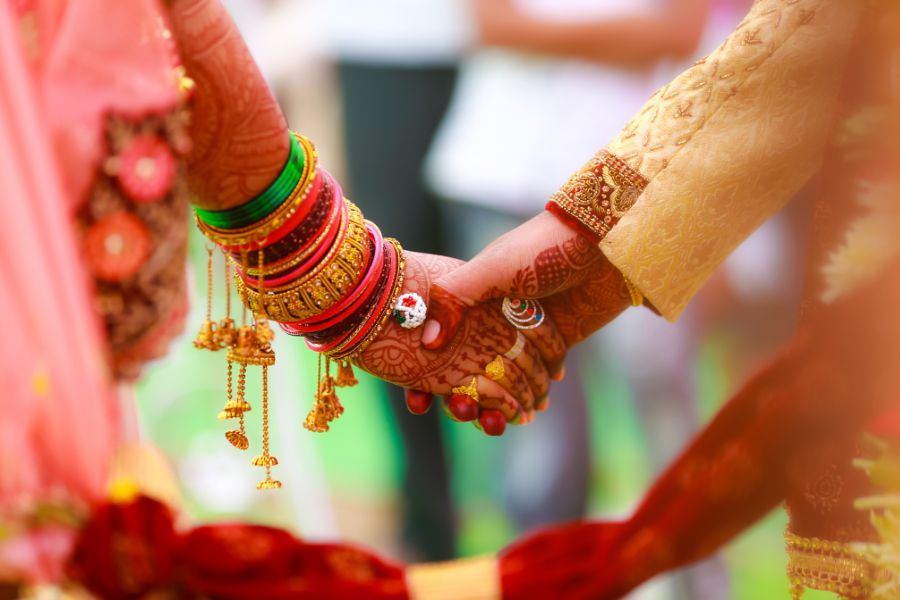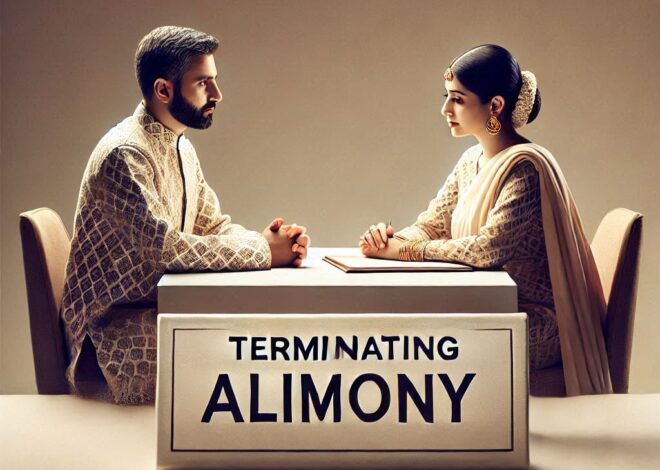
DON’T GET MARRIED BEFORE KNOWING THESE THINGS! A COMPREHENSIVE GUIDE FOR MEN AND WOMEN
Marriage is the most important aspect of one’s life. Choosing the right spouse is crucial in leading a long and happy married life. A wrong life partner can have a detrimental impact on one’s emotional, physical as well as financial condition. Here is the ultimate guide for those who wish to choose the right partner and have a blissful marital life.
This guide aims to provide a thorough overview of what you need to know before getting married, ensuring you’re well-prepared for this significant journey.
- Eligibility Criteria
Before you even think about planning your wedding, it’s crucial to ensure you meet the legal requirements for marriage in India. The legal age for marriage is 21 for men and 18 for women. Both parties must have the mental capacity to consent to the marriage, and the relationship must not fall within the degrees of prohibited relationships as defined by Indian law. This means you cannot marry close relatives, such as siblings or first cousins unless your community’s customs allow it.
- Premarital Counselling
Premarital counseling is an often overlooked but highly beneficial step. It provides a platform for couples to discuss their expectations, fears, and goals. Counseling can help you understand each other better and address potential issues before they become significant problems. Even if it’s not required, consider it an investment in your future happiness. Currently, there are no states in India except Goa, that mandate pre-marital counseling by law. It helps build a strong foundation for a healthy and successful marriage. Many private organizations and religious institutions offer premarital counseling services across India.
- Previous Marriages
If you or your partner have been married before, you’ll need to provide proof of divorce or a death certificate of the previous spouse. This ensures that both parties are legally free to marry again. It’s essential to have all the necessary documents in order to avoid any legal complications down the line.
- Marriage Registration
Registering your marriage is not just a formality; it’s a legal necessity. In India, you can register your marriage under the Hindu Marriage Act, of 1955, or the Special Marriage Act, of 1954. The latter is particularly useful for interfaith and inter-caste marriages. Registration provides legal recognition of your marriage, which can be crucial for various administrative and legal purposes, such as applying for a passport, visa, or even a bank loan.
5. Required Documents
Gathering the necessary documents well in advance can save you a lot of stress. Typically, you’ll need proof of age (like a birth certificate or school leaving certificate), proof of residence (like an Aadhaar card or utility bill), passport-sized photographs, and an affidavit of marital status. If you’re marrying a foreign national, additional documents like a No Objection Certificate (NOC) from the respective embassy may be required.
6. Premarital Agreement
A Prenuptial Agreement, or Prenup, isn’t just for the wealthy. It can protect both parties’ interests and clarify financial arrangements. In India, Prenups are not as common as in some Western countries, but they are gaining popularity. A well-drafted prenup can prevent misunderstandings and conflicts in the future, especially regarding property and financial matters. It typically includes provisions for:
- Asset Protection: Ensuring that personal assets remain with their original owner.
- Debt Allocation: Clarifying who is responsible for pre-existing debts.
- Spousal Support: Defining terms for alimony, if applicable.
- Business Protection: Safeguarding business interests from being divided.
- Property Division: Outlining how property will be divided in case of a divorce.
- Financial Transparency: Providing a clear picture of each party’s financial situation.
Indian law does not specifically govern prenuptial agreements, and they are not recognized under any statute. Marriages in India are dissolved according to personal laws, which vary by religion. In India, prenups are not explicitly recognized under personal laws such as the Hindu Marriage Act, of 1955, or the Muslim Personal Law. However, they can be considered valid contracts under the Indian Contract Act, of 1872, provided they meet the criteria of a valid contract, such as free consent, lawful consideration, and lawful object.
Under the Hindu Marriage Act, marriages are considered sacraments, not contracts, making prenups generally invalid. However, in Goa, prenuptial agreements are legally binding under the Portuguese Civil Code, allowing spouses to arrange asset distribution before marriage.
The Supreme Court and various High Courts in India have issued conflicting rulings on the validity of prenups, depending on the case specifics and applicable personal laws. Prenuptial agreements can protect assets and reduce litigation post-divorce, promoting transparency and financial independence within the marriage.
While enforcement of prenups by Indian courts is not guaranteed, these agreements can clarify the parties’ intentions and obligations, serving as evidence of a legally binding relationship.
To get a prenup, consult a family law attorney who can draft the agreement according to your specific needs and ensure it complies with Indian laws.
7. Name Change Process
If you or your spouse plans to change your name after marriage, be prepared for the legal process. This includes updating your name on identification documents, bank accounts, and other official records. The process can be time-consuming, so it’s best to start early. Make a list of all the documents that need updating and tackle them individually.
8. Financial and Property Considerations
Financial transparency is key to a successful marriage. Discuss your financial situation openly with your partner. Decide whether you’ll have joint or separate bank accounts, how you’ll handle property ownership, and how you’ll manage debts. Discussing your financial goals and creating a budget together is also wise. This can help avoid financial conflicts and ensure you’re both on the same page.
9. Ceremonial vs. Civil Marriages
Understanding the difference between ceremonial and civil marriages is crucial. While a religious ceremony holds significant cultural and emotional value, a civil marriage provides legal recognition. Ensure you complete the necessary legal formalities to register your marriage. This dual approach can help you honor your traditions while also securing legal protection.
10. Special Considerations for Foreign Nationals
If you’re marrying a foreign national, be aware of the additional legal requirements. This may include extra documentation. Ensure that your marriage is recognized in both countries.
It’s also important to understand the visa and immigration implications, as these can affect your ability to live and work together. If any party is a Foreign Citizen holds a foreign Passport or has having foreign residential address, a Certificate of Present Marital Status of the party is required. No Objection Certificate or NOC and a valid VISA are also required from the concerned Embassy.
The marriage between an Indian citizen and a foreigner will only be considered valid if it is registered under the Special Marriage Act, of 1954. In order to get a marriage registered in India, the act provides that the parties to the marriage must give written notice to the Sub-Registrar where at the least “one of the parties has domiciled for no less than thirty days right away before the date on which such notice is given.”
11. Legal Rights and Obligations
Marriage comes with a host of legal rights and obligations. These include property rights, inheritance laws, and financial responsibilities. Understanding these can help you navigate your married life more smoothly. For instance, in the event of a divorce, knowing your rights can help protect your interests.
12. Divorce and Annulment
While no one enters a marriage expecting it to end, it’s wise to be aware of the legal grounds for divorce and annulment. In India, divorce can be granted on various grounds, including cruelty, adultery, desertion, and mutual consent. Annulment, on the other hand, declares the marriage null and void as if it never happened. Knowing your rights and obligations in case of separation can provide peace of mind.
13. Health and Insurance
Ensure that both you and your spouse have adequate health insurance coverage. Discuss medical decisions and consider setting up a power of attorney for healthcare to make decisions on each other’s behalf if necessary. This can be particularly important in emergencies when quick decisions are needed.
14. Tax Implications
Marriage can affect your tax situation. Understand how your filing status will change and what tax benefits or liabilities you might face as a married couple. For instance, you may be eligible for certain deductions and exemptions that can reduce your tax burden. Consulting a tax advisor can help you navigate these changes.
15. Inter-Caste Marriages
Inter-caste marriages, while increasingly common, can come with their own set of challenges. The Special Marriage Act, of 1954, provides a legal framework for such marriages, ensuring legal protection and recognition. However, societal acceptance can vary, and you may face resistance from family or community members. It’s essential to have open and honest discussions with your partner about these potential challenges and how you’ll address them together.
Various schemes have been launched by the Central Government as well as State Governments to provide incentives and financial assistance to newly married inter-caste couples.
Inter-caste marriages can also bring unique cultural dynamics into your relationship. Embrace the opportunity to learn about each other’s traditions and customs. This can enrich your relationship and help you build a strong, inclusive family culture. Remember, the strength of your relationship lies in mutual respect and understanding.
PROCESS OF REGISTRATION OF MARRIAGE AFTER CEREMONIAL WEDDING:
Steps for Marriage Registration in India:
Online Registration
- Availability: Online registration is available in major cities across India.
- Website Login: Login to the official website of the state where the marriage was solemnized or where either partner has resided for more than six months.
- Form Filling: Fill out the marriage registration form available on the website.
- Registrar Meeting: After form submission, attend a meeting at the registrar’s office for document and witness verification.
- Marriage Registration: The registrar registers the marriage after verification.
Offline Registration
- Visit Sub-Registrar Office: Go to the office of the sub-registrar in the jurisdiction where the marriage was solemnized.
- Application Form: Fill out the application form manually.
- Signatures and Documents: Both parties must sign the form and submit the required documents.
- 30-Day Notice Period: If no objections are raised within 30 days, the marriage will be registered.
Special Marriage Act, 1954
- Marriage Officer: Marriages under this act must be solemnized by a marriage officer.
- Notice Submission: Submit a notice to the registrar, which will be displayed on the notice board for 30 days.
- No Objections: If no objections are raised during this period, the marriage will be registered.
These steps outline the online and offline procedures for obtaining a marriage certificate in India.
GETTING MARRIED IN A REGISTRATION OFFICE IN INDIA:
In India, it’s not uncommon for couples to face opposition from their families regarding their choice of partner. This can be due to various reasons, such as differences in caste, religion, or social status. When faced with such challenges, many couples opt for a court marriage, which is a legally recognized way to get married without the need for a traditional ceremony. This process is straightforward and provides legal protection to the couple.
Documents Required:
- Proof of Age: Birth certificate, school leaving certificate, or passport.
- Proof of Residence: Aadhaar card, voter ID, utility bill, or passport.
- Passport-sized photographs: Recent photos of both parties.
- Affidavit of Marital Status: Declaration of being single, divorced, or widowed.
- Notice of Intended Marriage: Submitted to the Marriage Registrar where one party has resided for at least 30 days.
- Witnesses: Three witnesses with proof of identity and address.
Steps to Register:
- Submit Notice of Intended Marriage: The couple must submit a notice of intended marriage to the Marriage Registrar of the district where at least one of the parties has resided for at least 30 days prior to the notice.
- Publication of Notice: The notice is published by the registrar, allowing for any objections to be raised within 30 days.
- Objection Handling: If no objections are raised within 30 days, the marriage can proceed. If objections are raised, they must be resolved before proceeding.
- Marriage Registration: After the 30-day notice period, the couple, along with three witnesses, must appear before the Marriage Registrar to sign the marriage documents.
- Issuance of Marriage Certificate: Once the documents are signed and verified, the Marriage Registrar issues the marriage certificate, legally recognizing the marriage.
Court marriages provide a straightforward way to ensure legal recognition and protection for couples facing family opposition.
Marriage is a beautiful journey, but it’s essential to be prepared for the legal and practical aspects. By keeping these points in mind, you can ensure a smoother transition into married life and focus on building a strong, loving relationship. Whether it’s understanding the eligibility criteria, navigating the legalities of inter-caste marriages, or managing financial and property considerations, being well-informed can help you make the best decisions for your future.
Remember, every marriage is unique, and what works for one couple may not work for another. The key is to communicate openly, respect each other’s perspectives, and seek professional advice when needed. With the right preparation and mindset, you can embark on this new chapter of your life with confidence and joy.


